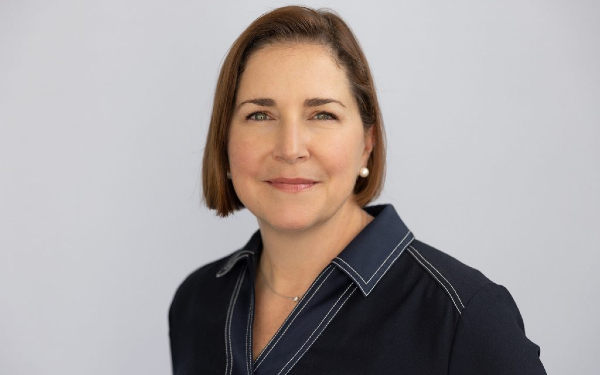
Domestic abuse services face a “state of crisis” because of a lack of funding for councils and uncertainty over future resources.
That was the warning from Domestic Abuse Commissioner Nicole Jacobs in a letter to Michael Gove, in which she urged the levelling up secretary to find emergency funding to shore up specialist services and prevent survivors “falling through the cracks”.
The commissioner – whose role is to raise awareness of domestic abuse, promote good practice and hold public bodies to account – said that non-statutory and accommodation services were at particular risk with some provision already being cut.
Council ‘bankruptcy’ notices
Jacobs was writing against the backdrop of the increasing number of councils issuing section 114 notices declaring they are unable to meet their legal duty to balance their budgets.
The notices – made by seven councils with social services responsibilities since 2018 – are typically met by government loans, conditional on the authorities making swingeing cuts to bring their budgets back into balance.
With authorities having to protect statutory services, including in social care, these particularly affect non-statutory provision.
Jacobs said most community-based domestic abuse services were non-statutory and so were unprotected.
Survivors risk ‘falling through cracks’
“Ultimately, this is likely to lead to a significant reduction in provision and even the permanent closure of independent, specialist domestic abuse services,” she told Gove.
“As a result, increasing numbers of survivors will fall through the cracks in provision, meaning that they will not receive a comprehensive, holistic response including prevention, early intervention or urgent help when they are in crisis – or they may not receive a response at all.”
She said that survivors from marginalised groups were at particular risk from the loss of provision delivered ‘by and for’ community members, and raised particular concerns about councils seeking to cut costs by commissioning a single large provider.
Demand ‘will skyrocket for social care’
Jacobs also warned that such cuts would prove a false economy by causing demand for statutory services to “skyrocket”.
“Without opportunities to support victims and survivors at an earlier stage, abuse may escalate and crisis response through accommodation-based services and children and adult social care
will be left to pick up the pieces,” she said.
However, Jacobs also warned that statutory, accommodation-based domestic abuse services were at risk and, in some areas, already being cut.
These are provided under part 4 of the Domestic Abuse Act 2021, which requires councils with social services responsibilities to assess the need for accommodation-based support and publish strategies for the provision of such support in their areas.
Statutory guidance from the Department for Levelling Up, Housing and Communities (DLUHC) places an expectation on councils to “meet the needs of victims including their children in line with their local strategy as soon as reasonably practicable”.
Uncertainty over accommodation funding
DLUHC provided councils with £257m in dedicated funding from 2023-25 to fulfil these duties but, as with other government resource streams, there is no certainty this will continue beyond March 2025.
As a result, councils were considering decommissioning services and, in some cases, already doing so, Jacobs warned.
“Local authorities are already beginning to make decisions about what they think they can afford to commission whilst still ensuring that they fulfil the duty, and my office has already heard about provision being significantly cut for 2024-25,” she told Gove.
‘State of crisis’ requires emergency funding
“The picture is deeply concerning, and what was once a perilous financial situation is
now nothing less than a state of crisis which will impact the response to domestic
abuse, serious youth violence, and child protection, amongst other serious
community issues,” she added.
Jacobs called on Gove to provide councils with emergency funding to maintain specialist domestic abuse services, backed by guidance on the necessity of resourcing this provision for the fulfilment of their statutory duties.
She also urged him to provide clarity as soon as possible on the future funding of councils’ duties on accommodation-based support.
Longstanding postcode lottery – Women’s Aid
Her concerns were echoed by domestic abuse and council leaders.
Women’s Aid Federation England chief executive Farah Nazeer said there had long been a “postcode lottery” in women and girls’ access to domestic abuse support because of a “funding crisis”.
She urged the government to find £427m a year to fund specialist women’s domestic abuse services, with ring-fenced resources for provision for black and minoritised and D/deaf and disabled women, as well as LGBT+ survivors.
“It is only by securing these vital funds can the services continue delivering the life-saving care and support to survivors and their children,” she added.
‘Increasingly difficult for councils to meet need’
For the Local Government Association (LGA), safer, stronger communities board chair Heather Kidd agreed with Jacobs that funding pressures and competing demands were making it increasingly difficult for councils to meet domestic abuse needs.
“Only with long-term, reliable funding, can councils help safeguard individuals and families from the physical and psychological harm caused by domestic abuse,” she said.
“Investment in the prevention and early intervention measures are needed to tackle the root causes, support more victims, and stop domestic abuse occurring in the first place.”
Government defends funding record
However, the DLUHC defended its record on funding both councils, both generally and for domestic abuse services.
“Domestic abuse is a heinous crime and that is why we are providing victims and survivors with the support they need,” said a spokesperson. Our Tackling Domestic Abuse Plan is investing over £230m to drive down the prevalence of domestic abuse, and since 2021, we have committed £507m to help councils provide support within safe accommodation to victims and their children.
“We recognise councils are facing challenges and that is why we announced an additional £600m support package for councils across England, increasing their overall funding for the upcoming financial year to £64.7bn – a 7.5% increase in cash terms.”
Additional cash ‘not enough’
This is a reference to additional funding for 2024-25 announced last month, £500m of which is for social care.
However, three-quarters of councils said they would still need to make cuts to their adult social care budget and 69% said the same in relation to their children’s services budget, despite the additional resource, in response to an LGA survey.




 Family help: one local authority’s experience of the model
Family help: one local authority’s experience of the model  ‘I spent the first three months listening’: how supportive leadership can transform children’s services
‘I spent the first three months listening’: how supportive leadership can transform children’s services  How senior leaders in one authority maintain a culture of excellence
How senior leaders in one authority maintain a culture of excellence  How staff support ensures fantastic outcomes for children and families
How staff support ensures fantastic outcomes for children and families  Workforce Insights – showcasing a selection of the sector’s top recruiters
Workforce Insights – showcasing a selection of the sector’s top recruiters 

 Facebook
Facebook X
X LinkedIn
LinkedIn Instagram
Instagram
Comments are closed.